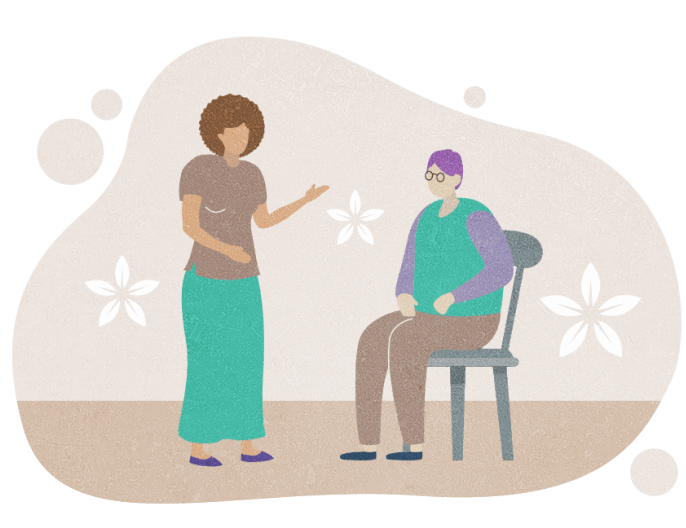The different types of dementia
![]()

Understanding the different types of dementia
Dementia is a broad term that refers to a decline in cognitive abilities which is severe enough to affect daily activities. Memory loss, difficulties with problem-solving and thinking, and changes in mood, behaviour, and communication are some of the most common hallmarks of dementia. In this blog post, we will delve deeper into the different types of dementia, their symptoms, diagnosis, and treatment options. Whether you are living with dementia or caring for a person with the condition, understanding the different types of dementia can be helpful in promoting the best care and support.
Alzheimer’s disease
Alzheimer’s is the most common type of dementia. Research conducted by the Alzheimer’s Society in 2019 concluded that there were more than 850,000 people living with dementia in the UK. It is a progressive disorder that usually affects people over 65 years of age. The disease can affect memory, thinking, and behaviour, making it difficult for a person to accomplish daily tasks. The early signs of Alzheimer’s include memory loss, difficulty in handling finances, the tendency to misplace objects, and trouble with planning or organising.
Vascular dementia
Vascular dementia is also known as multi-infarct or post-stroke dementia. It is the second most common type of dementia after Alzheimer’s, accounting for about 10% of all dementia cases. This type of dementia occurs when blood flow to the brain is blocked, leading to brain cell damage or death. Common symptoms of vascular dementia include difficulty in concentrating, slower thinking, impaired judgment, and problems with bladder control.
Parkinson’s disease dementia
Parkinson’s disease is a degenerative disorder that affects the central nervous system, causing movement problems such as tremors, stiffness, and balance difficulties. In some cases, Parkinson’s disease can lead to dementia, affecting memory, thinking, and behaviour. Parkinson’s disease dementia may cause hallucinations, delusions, and depression in addition to motor symptoms.
Lewy body dementia
Lewy body dementia is another type of dementia that can share some symptoms with Parkinson’s disease, such as tremors, slow movement, and stiffness. The defining feature of Lewy body dementia is the presence of Lewy bodies, or abnormal clumps of protein, in the brain. Lewy body dementia can cause hallucinations or vivid dreams, problems with attention, and fluctuating cognitive function.
Frontotemporal dementia
Frontotemporal dementia is a group of disorders characterised by damage to the frontal and temporal lobes of the brain, leading to changes in behaviour, personality, and language skills. The disease typically affects people under 65 and can lead to social or emotional disinhibition, apathy, or compulsive behaviours.
Dementia can be a challenging and overwhelming condition, but understanding the different types of dementia can help in providing appropriate care and support. Your first step if you have any concerns is to contact your GP. In Britain today, most GPs are the gatekeepers to accessing appropriate and local services. Your GP would refer you to a local memory clinic, where you will have access to a multi-disciplinary team of specialists. They will review your situation and guide you step by step through the diagnosis and treatment options.
While there is currently no cure for dementia, early diagnosis and intervention can significantly improve a person’s quality of life. If you or someone you know is experiencing memory loss, having difficulty with daily tasks, or displaying other signs of dementia, it is essential to seek medical advice promptly. With the right approach and support, people with dementia can continue to lead meaningful lives. Speak to our team on 0208 857 7717 to learn more.
Speak to our team
We’re always happy to have a friendly, informal chat. Call 0208 857 7717 to discuss your live-in care requirements with a member of our team.
